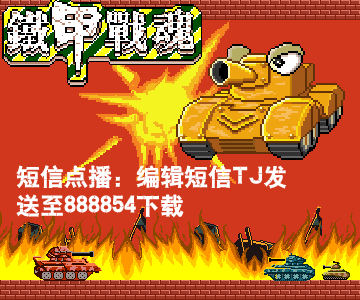第二部分:英语知识运用(共两节,满分45分)
第一节 单项填空(共15小题;每小题1分,满分15分)
从A、B、C、D四个选项中,选出可以填入空白处的正确答案,并在答题纸上将该项涂黑。
21. —Where can I tie the horse?
—Oh, you can tie it to _____ of the trees.
A. both B. every C. each D. either
22. Let’s _____ to clean the house. It’s too dirty.
A. set about B. set out C. set off D. set down
23. ___ is mentioned above, the number of the students in senior high school is increasing.
A. As B. It C. That D. What
24. _____ this text can be used for listening has not been decided yet.
A. Which B. If C. Whether D. As
25. —Thank you for your help.
—_____. Good luck.
A. With pleasure B. Yes C. My pleasure D. No
26. Your shoes are _____.
A. where they were B. the place you put
C. in the corner that you put D. there where they are
27. I like _____ of the two films, for this is _____ than that one.
A. both; not more interesting B. either; no more interesting
C. neither; no more interesting D. either, not more interesting
28. _____ turn color and fall to the ground is a sign of winter.
A. That leaf B. That leaves C. Those leaf D. Those leaves
29. —It was fine yesterday.
— _____. And a very nice day for fishing, isn’t it?
A. So it was B. It is so C. So it is D. So is it
30. Mrs. White found her husband surrounded by letters and papers and _____ very worried.
A. look B. looks C. looking D. to look
31. Workers in this factory are paid _____ the day.
A. on B. in C. by D. with
32. He will be late _____ he can catch the 10:30 train.
A. if B. as if C. if not D. even if
33. The dictionary still _____ where I _____ it a moment ago.
A. lies; laid B. lied; lay C. laid; laid D. lies; lay
34. I like the book _____ by Tom.
A. written B. be written C. writing D. to write
35. Just as the value of a telephone network increases with each new phone _____ to the system, so does the value of a computer system increase with each program that turns out.
A. adding B. to have added C. to add D. added
第二节 完形填空(共20小题;每小题1.5分,共30分)
阅读下面短文,掌握其大意,然后从各题所给的A、B、C、D四个选项中,选出可以填入空白处的最佳选项,并在答题纸上将该项涂黑。
Yesterday evening I was watching the evening news on television. The news was about a 36 for scientific discoveries. The announcer, whose name was Ralph Story, 37 something that caught my 38 . “All great discoveries,” he said, “are made by people between the age of twenty-five and thirty.” Being a little over thirty myself, I wanted to 39 with him. Nobody wants to think that he is past the age of making any 40 . The next day I went to the public library, spending several hours, and 41 to find the ages of famous people and their discoveries. Ralph was right.
First I looked at some of the 42 discoveries. One of the earliest, the famous one that 43 that bodies of different weight 44 at the same speed, was made by Galileo when he was 26. Madam Curie started her research that led to a Nobel Prize when she was 28. Einstein was 26 when he 45 his world-changing theory of relativity. Well, 46 of that. Yet I wondered if those “best years” were true in other 47 .
Then how about 48 ? Surely it needed the wisdom of 49 to make a good leader. Perhaps it does, but look when these people 50 their careers. Winston Churchill was elected to the House of Commons at the age of 26. Abraham Lincoln 51 the life of a country lawyer and was elected to the government at what age? Twenty-six.
But why don’t best years come after thirty? After thirty, I 52 most people do not want to take risks or try new ways in their lives. Then I thought of those famous people 53 Shakespeare and Picasso. The former one was writing wonderful 54 at the late age of fifty, 55 the latter was still trying new ways of painting when he was ninety!
36. A. program B. prize C. conference D. report
37. A. said B. announced C. explained D. studied
38. A. mind B. care C. attention D. surprise
39. A. disagree B. talk C. meet D. advise
40. A. chance B. discovery C. research D. fortune
41. A. happened B. wanted C. succeeded D. managed
42. A. last B. scientific C. oldest D. modern
43. A. found B. proved C. doubted D. showed
44. A. disappear B. move C. meet D. fall
45. A. invented B. developed C. published D made
46. A. plenty B. enough C. much D. all
47. A. fields B. science C. course D. ages
48. A. election B. politics C. leaders D. society
49. A. age B. brain C. living D. leadership
50. A. finished B. won C. started D. defeated
51. A. led B. devoted C. began D. gave up
52. A. guess B. know C. believe D. agree
53. A. as B. to be C. like D. about
54. A. paintings B. idioms C. poems D. works
55. A. when B. while C. who D. after
![]() 北京市通信公司提供网络带宽
北京市通信公司提供网络带宽

